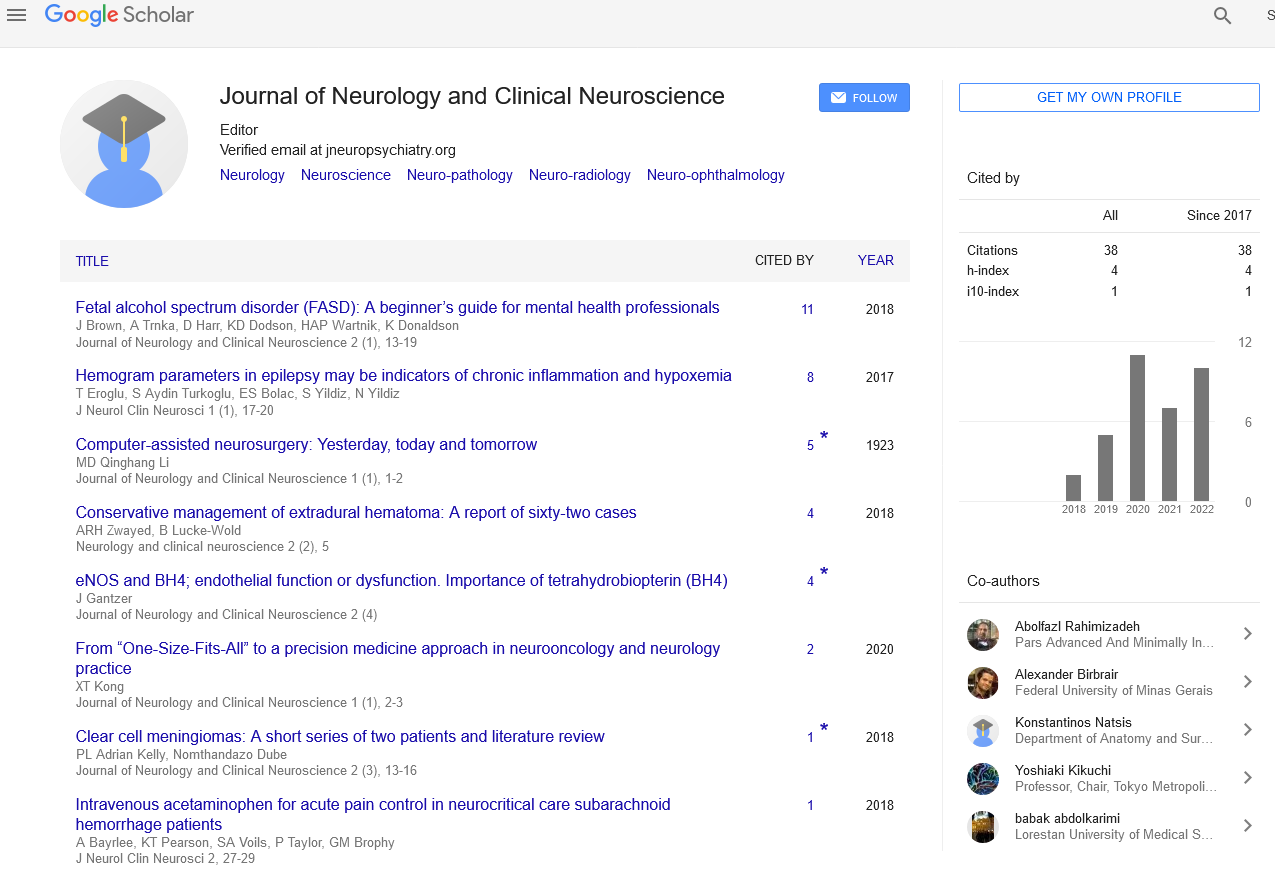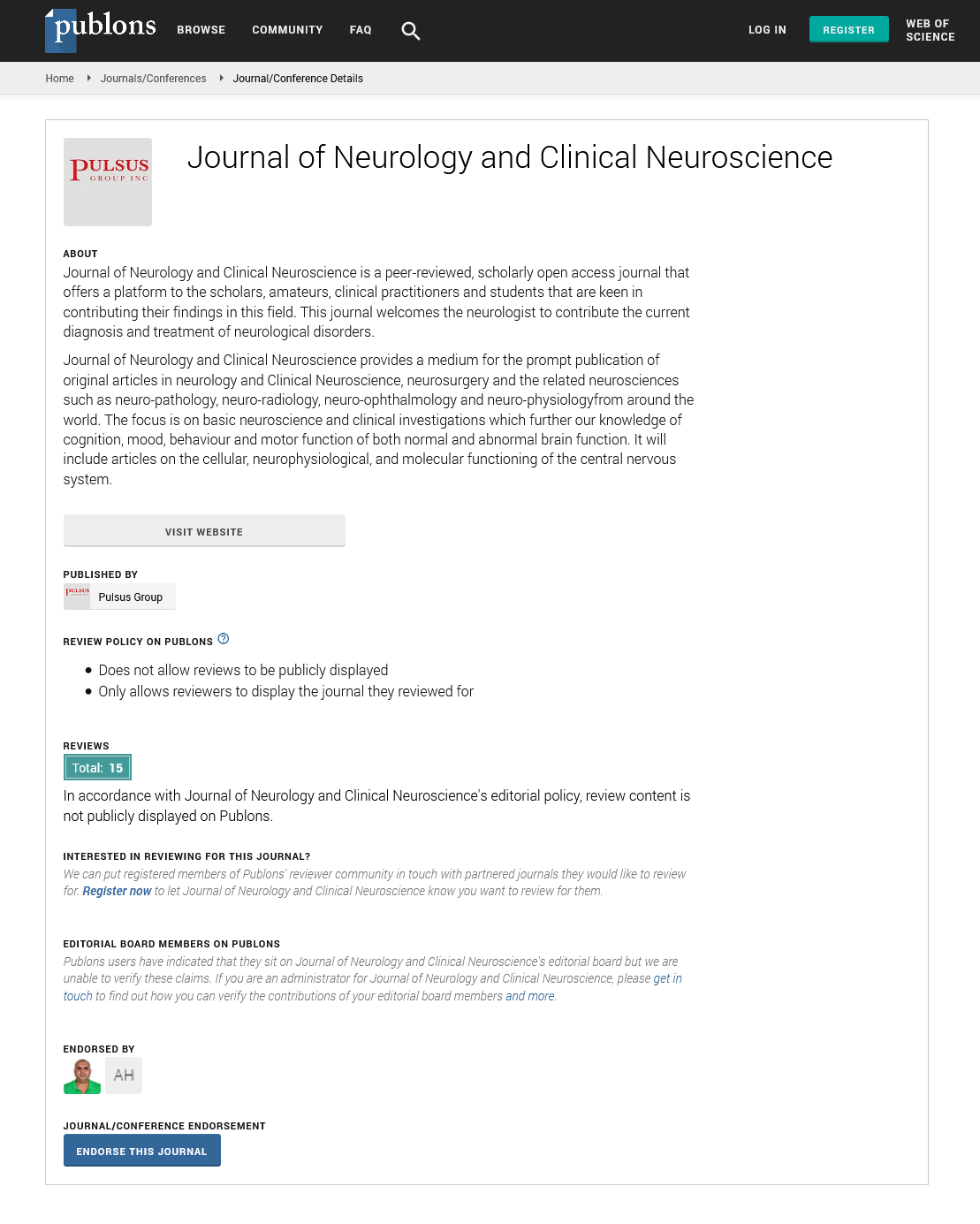Sign up for email alert when new content gets added: Sign up
Dream experience in the absence of vision
Joint Event on 6th Annual Meeting on Neurosurgery and Neurological Surgeons & 9th Global Summit on Neuroscience and Neuroimmunology
May 22-23, 2019 London, UK
Shabbir saifuddin, Alaa al zawawi and Tasneem shabbir
University of Dubai, Dubai
University of Alexandria, Egypt
School of Optometry, Dubai
Posters & Accepted Abstracts: J Neurol Clin Neurosci
Abstract :
As vision is the predominant sensory modality in the dreams of normally sighted people, it is reasonable to ask do blind individuals have visual dreams? Blindness, particularly when it occurs early in life, is associated with reduced visual imagery and an increased incidence of sleep disturbances including more frequent nightmares. However, the sensory and emotional dream qualities of individuals with differing blindness etiologies remain poorly studied. The goal of the present study was to further assess the dream experiences of individuals with different times of blindness onset.
We examined dream reports collected from 11 blind individuals who reported no light perception, and 11 age- and sex-matched normal-sighted controls. Of the blind individuals, 5 were born blind (congenital blind) and 6 had acquired blindness sometime after birth (late blind). Dream content and themes were examined using daily dream questionnaires collected over a period of 30 days, as well as with the Inventory of Dreams: Experiences and Attitudes (IDEA) questionnaire and the Typical Dreams Questionnaire (TDQ). As expected, the incidence of visual dream elements was much lower in both groups of blind individuals, while other sensory modalities were more present. Further, congenitally blind individuals, but not late blind individuals, reported more nightmares.
Although dream themes were generally similar between blind and normal-sighted individuals, as well as between the congenital and late blind groups, we noted some contents that were characteristic of the blind.
Particularly, they reported a greater intensity of positive emotions in their dreams, as well as a more positive attitude towards the dreaming experience.
Blindness not only results in the reduction of visual elements in dream content, but may alter their emotional quality, including a heightened frequency of nightmares among congenitally blind individuals.
Biography :
E-mail: tasmooon@gamil.com





